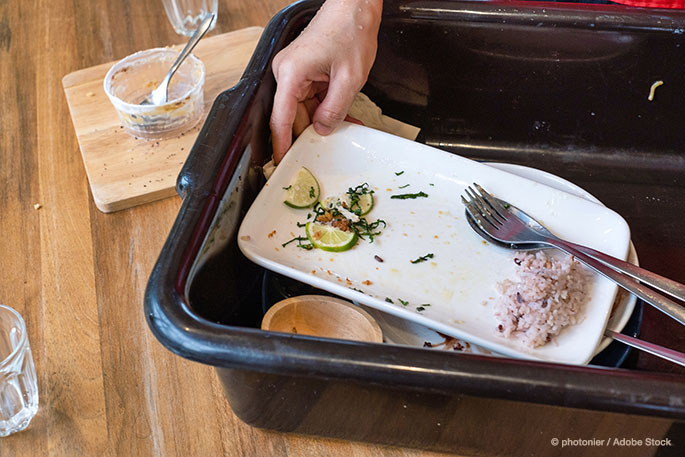
Many governments, both local and national, across the world ask their citizens to place food waste into separate containers. The idea is that such waste can be processed as compost, keeping it out of landfills where it rots and emits methane, a greenhouse gas. Thus, food waste is recycled to grow more food on farms and in gardens.
The Republic of Ireland, according to Waste Management World, has such a system, called Brown Bins. However, the government of Ireland found that a problem of compliance has arisen. Food waste smells bad and attracts vermin, so many people are reluctant to store it separately. A pilot program was tried out in Sligo City that involved waste advisors going door to door in residential neighborhoods. These advisors delivered kitchen caddies, compostable liners, and information to each household to try to increase the amount of food waste that was being diverted to the Brown Bin program.
After 12 months, the pilot program was deemed successful. The amount of food waste being sequestered from ordinary trash to be recycled roughly doubled in Sligo. As a bonus, non-food waste such as glass, metal, and plastic that found its way into the brown bins decreased from 18 percent to one percent of the total trash. Government officials suggest that the pilot program should be introduced throughout the Irish Republic. No news exists when such an effort would take place.
One lesson learned from the Sligo pilot program is that face-to-face interaction to get the point across the best. Not only can a human being tailor the information to a particular household’s needs, but he or she can answer questions. The process may be time-consuming and expensive, but the result in Ireland seems to speak for itself. Eventually, a culture of recycling food waste will be developed and will become second nature.




































































































































 Three Ways to Engage Teams and Clients to Maximize Your Recycling Program Engagement
Three Ways to Engage Teams and Clients to Maximize Your Recycling Program Engagement  How to Integrate Accessibility Into Your Sustainability Planning
How to Integrate Accessibility Into Your Sustainability Planning  Why Park Benches Can Promote Workplace Well-Being
Why Park Benches Can Promote Workplace Well-Being 
